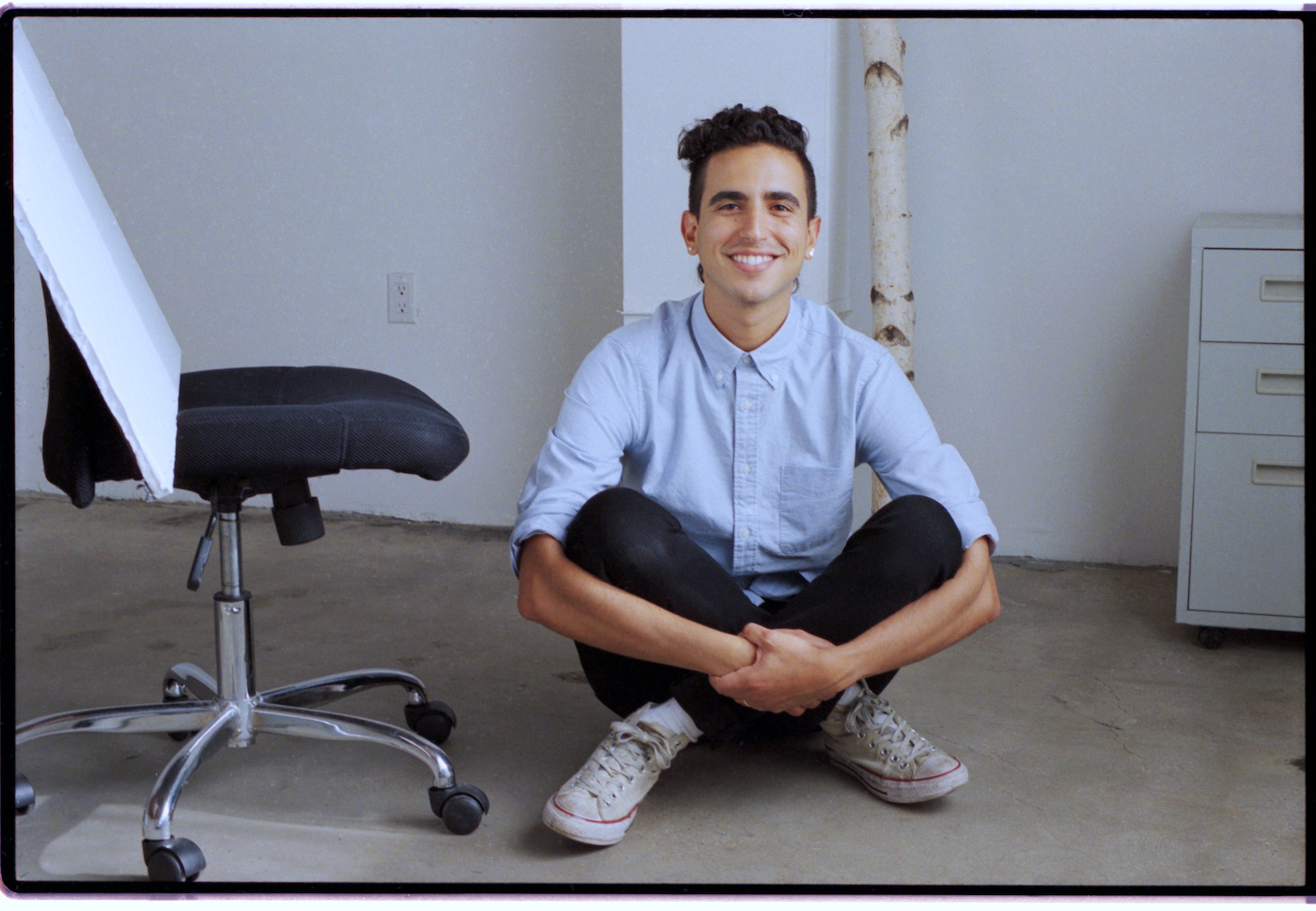Dylan Marron has a personality that immediately puts you at ease. He delivers fast-paced quips that keep you on your toes, bounces between a variety of comedic voices, and, most importantly, listens with warmth and honesty. So it’s crystal clear how he is able to cut through the cacophonous bickering of the internet and create engaging, shareable videos like “Sitting in Bathrooms with Trans People” and “Unboxing” that spotlight the voices and experiences of minorities. His videos, with clicky titles like “Men Kissing Men” and “Happy Hetrosexual Pride Day,” are fun but informative, and commonly tally over 10 million views on Facebook. In fact, Dylan is one of the few people to successfully figure out how to hold nuanced, but accessible, conversations about social justice on Facebook. For example, in a two-minute video about the Dakota Access Pipeline, Dylan comically guzzles fake oil while explaining the risk of a catastrophic oil spill if the contested pipeline gets built. The video is wacky and vital at the same time.
“I want frustration to pass through my body and then be transmitted in an accessible message,” Dylan explains. After our interview he will jet off to record an episode of his new podcast, Conversations with People Who Hate Me, in his Crown Heights apartment. “I equate frustration and wanting to share a message as the same thing.”
Frustration is what motivated Dylan to create his YouTube series Every Single Word in 2015. Dylan took popular films like Wes Anderson’s Moonrise Kingdom, the Harry Potter franchise, and Spike Jonze’s Her and compiled all the lines spoken by people of color. Perhaps the most poignant moment of Every Single Word was the video for Disney’s film adaptation of Stephen Sondheim’s Into the Woods, which featured nothing but a black screen and pure silence for a couple of seconds. There was not a single speaking role by a person of color in the film. “I just wanted to empirically lay out the facts,” Dylan says. “It was kind of through my beginning experiences in the industry that I realized there were so many walls I was hitting. People telling me they thought I was really talented but it was unlikely that I would get work [in acting]. I didn’t understand how those two fit together. So I started the Every Single Word series.”

This is Dylan’s talent: illuminating centuries-old problems like cultural appropriation and whitewashing in a way that doesn’t feel didactic. He lets his audience make their own decisions. “I don’t know if I’ve succeeded, but I wanna work on not being so preachy,” he says. “That’s why I love the interview format. This is gonna sound pretentious,” Dylan groans, “But whatever: I really love getting to show people’s full humanity.”
Wanting to show people’s full humanity is exactly why Dylan started Conversations with People Who Hate Me. In the series, he holds in-depth, open dialogues over Skype with people who have posted vitriol-filled comments on his social media pages. Dylan is often able to unearth the deeper reasons for his subjects’ online abuse: for example, someone who told Dylan to “go die” has struggled with suicidal thoughts in the past. And a teenage boy who bullied Dylan online was experiencing severe bullying himself at school.
“I was getting mostly positive comments [online], but the way our brain works is if you get ten positive comments and one negative one, the negative one is what you pick up on,” Dylan says about his unique solution to cyberbullying. Under the Trump presidency America has entered a new era of discord, and exchanging ideas and ideologies is extremely important but, Dylan reinforces, not easy at all. “I didn’t realize it’s really hard emotional work,” he says. “When people were telling me that in the beginning, I was like, ‘I can do it. Shut up!’ (Well, not shut up, cause this was like my mom.) The calls themselves are amazing, because I’m talking to a stranger and we start in a negative place and, so far, we always end in a positive space. What’s hard is shepherding it into the world. Because I feel like I’m walking on this really terrifying tightrope: wanting to get my views across but also making sure I’m honoring [these people] for who they are.”
Conversations with People Who Hate Me has faced pushback. People have claimed Dylan is providing a platform for the “other side” to spew hate. The way Dylan sees it, things are not so black and white. “It’s too dichotomous to say ‘the other side,'” he argues. “There are infinite sides. I’m actually finally realizing that there are people in the world who use slightly different words from us and are the product of their circumstances — just like me — and it’s about listening to them as well.”
Dylan may come off as a seasoned pro in these conversations. But the multi-hyphenate is only two years into his internet fame and just beginning his ascent: he was recently tapped by vlogger/comedian Franchesca Ramsey to co-write the pilot of her in-development Comedy Central show. “The one thing I want to be clear about is this: it took a long time,” Dylan says about finding his niche. “I felt very lost after college. I’m from New York City, so I went back to live with my mom and was sleeping on my childhood bunk bed. It doesn’t get more real than that.”
And while Dylan is busy taking on a deluge of projects in different fields and mediums, he has a simple guiding mission: to help create a racially just, equitable society. “I may get publicly dragged for this, but I’m really guided by that Mister Rogers quote: ‘You can’t help but to love someone once you hear their story.'”
Photography Davey Adesida
